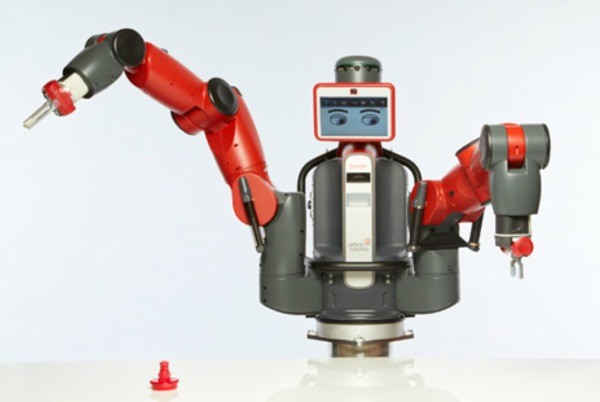| The State Of AI According To Rodney Brooks |
| Written by Mike James | |||
| Sunday, 14 April 2019 | |||
|
AI - overhyped and oversold - or is it? Rodney Brooks, Robotics Professor at MIT, should know. He has been trying to apply it real world uses for a long time. He recently delivered the annual Sackler lecture under the auspices of the National Academy of Sciences with the title "The Science of Deep Learning". This is an interesting talk by an interesting man. Brooks has created more robotics companies than most robotics experts have created robots - well ok only two but they loom large in the halls of robotics - iRobot (yes the guys who make the Roomba vacuum cleaner) and Rethink Robotics. Rethink Robotics was the latest and most general purpose, but it closed in 2018 after building Baxter a very promising and advanced robot.
I guess the failure indicates how hard it is to apply AI to the real world where hardware has to compete with wetwares ability to move fast and accurately and do a job without seeming to need to think about it. So is AI currently a con? Brooks takes to task the current state of AI with the following sections:
Take a look at the video. Settle down because it's over an hour long, but if you have any interest in AI it's worth the watch. Even if you are an expert there are some things that will make you think and even the history is interesting: I think that the main emphasis that is missing is recognizing the current state of AI as one of building the modules we need. Neural networks are just a component in a bigger system. Expecting a solution to the problem when we are on the first rung of the ladder is unreasonable. At the moment we have modules that can do jobs that just a few years ago were difficult. Alexa, and similar, sit in our houses devices, and take voice commands like the computer on the original Star Trek. The future has arrived! No, not really, because as soon as you ask something even slightly off-script the hilarity commences. Alexa isn't backed by anything that is even remotely intelligent - for each part of the "general intelligence" we need a specific module. Once we have speech implemented at a level that we don't have to work on it, we can work on the next level and so on. The really difficult part is that the hardware, and huge amounts of data that we need to build these small modules, is nothing compared to what we need to use the modules as the building blocks of the even bigger systems. We have a long way to go but there will be many useful and interesting things along the way.
By Science History Institute, CC BY-SA 3.0, https://commons.wikimedia.org/w/index.php?curid=39825832 More InformationRelated ArticlesRodney Brooks And Why Robots Will Be Essential Baxter Is A Useful Robot - Sort Of Rodney Brooks On Robotics And Baxter
To be informed about new articles on I Programmer, sign up for our weekly newsletter, subscribe to the RSS feed and follow us on Twitter, Facebook or Linkedin.
Comments
or email your comment to: comments@i-programmer.info <ASIN:037572527X> <ASIN:0262522632>
|
|||
| Last Updated ( Sunday, 14 April 2019 ) |



